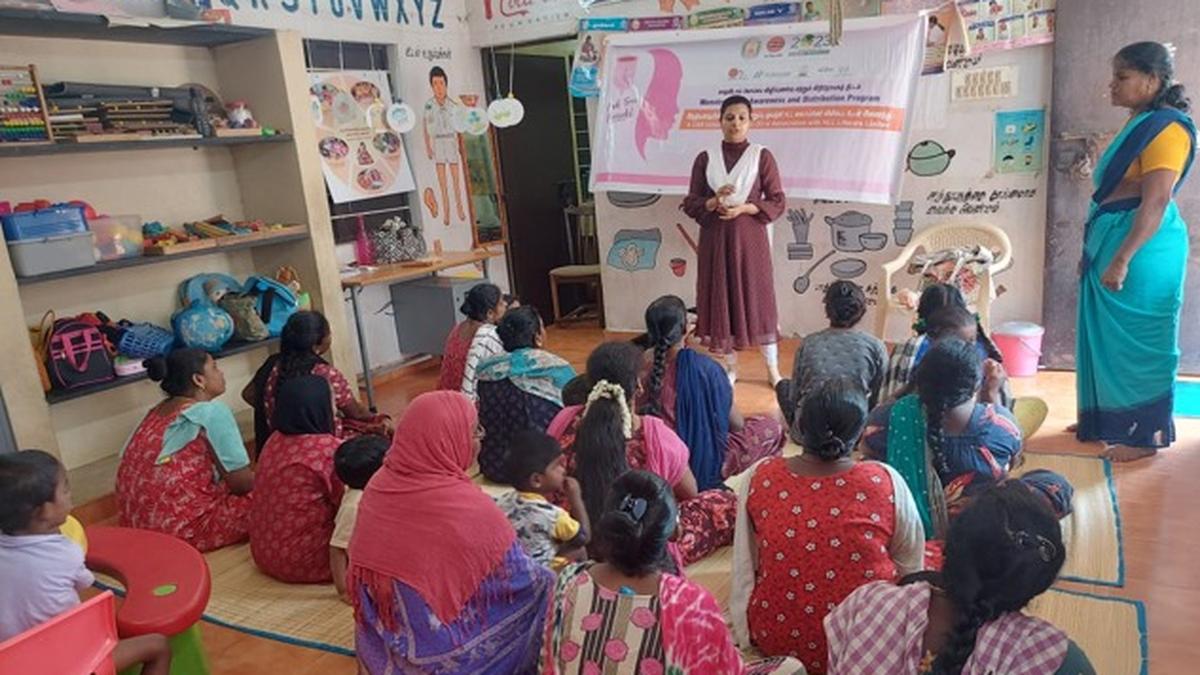
How M-cups are slowly but surely transforming menstrual hygiene in south India Premium
The Hindu
Discover how the Thinkal project is revolutionizing menstrual hygiene in India with reusable, affordable menstrual cups for women.
It was her first time using a menstrual cup, but Ashwini (name changed), a Chennai native, was more curious than apprehensive. “It involves insertion [into the vagina], so I was a little unsure. There was some initial discomfort, but after a few tries, I got used to it,” says the 38-year-old.
Ms. Ashwini was one of the beneficiaries of the Thinkal project, as part of which about 2,000 menstrual cups, or M-cups, were distributed for free in select areas of North and South Chennai over the past two years. The project, launched by HLL Lifecare Limited — a government-owned company under the Union Ministry of Health and Family Welfare — was then expanded to other parts of Tamil Nadu, including Dindigul, Erode, and Thanjavur.
Menstrual hygiene remains a significant challenge in India, particularly in low-income settings, due to deeply rooted social and cultural beliefs and limited awareness. Common products like sanitary napkins and tampons are expensive, placing them out of the reach of many women, who are then forced to rely on unhygienic alternatives, which can cause numerous health issues and lead to poor reproductive health. Sanitary napkins and tampons also contribute substantially to environmental waste.
Menstrual cups, on the other hand, are widely considered healthy, safe, and affordable alternatives. An M-cup is essentially a device that is inserted into the vagina during menstruation to collect blood. The cups distributed under the Thinkal project are made of non-absorbent, reusable, medical-grade silicone, and are bell-shaped, sealing against the wall of the vagina, just below the cervix. They can ideally be used for 6-12 hours depending on blood flow, must be boiled in water after each period, can be reused for a minimum of five years, and are suitable even when water and sanitation facilities are scarce.
Sapna Raina, Senior Consultant and Clinical Lead in the Obstetrics and Gynaecology Department, Narayana Health City, Bengaluru, says menstrual cups have been shown to improve menstrual hygiene, when compared to cloth, sanitary pads, or even tampons. “Unlike cloth or sanitary pads, there are no issues of chafing with menstrual cups. They are also less likely to cause infections,” she says.
During the 2018 Kerala floods, women in relief camps in Alappuzha — one of the worst-hit districts — faced severe difficulties accessing and disposing of sanitary pads. The Thinkal project was launched in the Alappuzha municipality that same year to address some of these concerns. The programme involved identifying beneficiaries, educating them about the use of M-cups before their distribution, and analysing the product’s acceptability through feedback. This was done with the help of anganwadis, civic bodies, healthcare workers, local NGOs, self-help groups, medical practitioners, and the State government.
Thinkal was soon extended to other parts of Kerala, and in two villages in particular — Kumbalangi in Ernakulam and Kallikkad in Thiruvananthapuram — the acceptance of M-cups was so high that they were declared ‘sanitary napkin-free’ grama panchayats.

Kannada film actor Ranya Rao caught smuggling gold, leading to a high-profile investigation and political implications. As Opposition questions ruling Congress over involvement of politicians, serious concerns have been raised about the security breach at airport and abuse of police protocol by families of officers

 Run 3 Space | Play Space Running Game
Run 3 Space | Play Space Running Game Traffic Jam 3D | Online Racing Game
Traffic Jam 3D | Online Racing Game Duck Hunt | Play Old Classic Game
Duck Hunt | Play Old Classic Game










